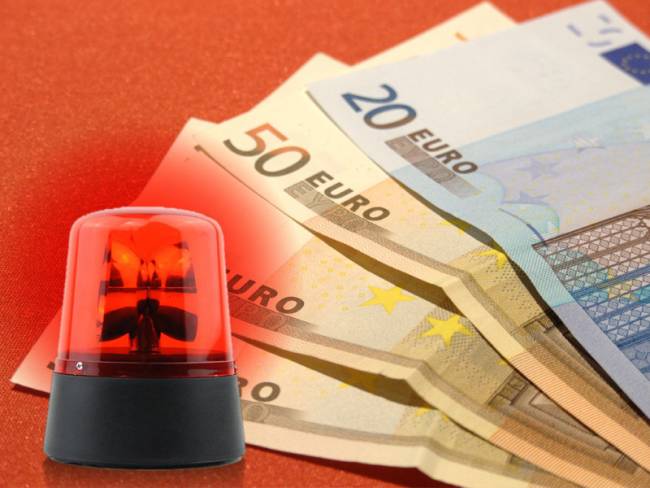BY: Jack Ewing, Economic Times
ATHENS: Apostolis Paliouras was proud of the bookstore he ran on the ground floor of an apartment building in a middle class neighborhood here. Greek authors came to give readings and sign their works. People gathered to debate matters literary and political.
But his sales plummeted in 2011 after the Greek government, bowing to demands from its international creditors, imposed a new property tax and added it to utility bills in an attempt to stem the country’s notorious tax evasion. People who did not pay risked having his power shut off. The tax crackdown crippled consumer spending.
The tax problem quickly bled into another of Greece’s economic afflictions. In 2012, Paliouras was forced to close the bookstore and, with his main source of income gone, he was no longer able meet mortgage paymentson the home he shares with his wife. And so he joined a group that has lately grown to catastrophic proportions in Greece: loan delinquents.
Although the tough task of dealing with delinquent loans is one of the biggest challenges facing the government of Prime Minister Alexis Tsipras and the country’s creditors, the issue is so knotty that it was not included in the bundle of economic reforms the Greek Parliament was debating this week. Instead, it will be taken up later.
Officially, more than 40 per cent of loans issued by Greek banks are seriously in arrears. By some estimates, the rate is more than 50 percent, if loans that have gone sour in recent months are included. That is one of the highest rates in the world, and it has so weakened the Greek banking system that it raises doubts about the country’s ability to mount an economic recovery. (The comparable figure in the United States is only 2 percent.)
Despite Greece’s latest international bailout, worth as much as 86 billion euros — about $98 billion — the country cannot stage a comeback if its banks are flailing. The effects could be felt throughout the eurozone financial system and all the way to Wall Street.
A big challenge for Greece is how to address the bad loan problem in a way that offers some hope to debtors like Paliouras, yet does not destroy the banking system. That is why the government has decided to defer action on the issue for now.
In any case, longer-term solutions for resolving the bad loans will lie largely with the European Central Bank, which is expected to complete an assessment of the health of Greek banks by the end of October, then come up with a recovery plan in conjunction with Greek authorities. Representatives of the largest Greek banks were in Frankfurt this week to discuss the problem with central bank officials.
Big American investors who are sharing the pain include the billionaires Wilbur Ross and John Paulson, whose investment funds have made big bets on Greek banks, along with Fidelity Investments and Capital Group. Those investors have already suffered paper losses because of steep declines in the value of Greek bank shares, and could lose more if bad loans wipe out more bank capital.
The latest international aid package for Greece includes up to 25 billion euros to replenish the capital of Greek banks. According to rough estimates circulating in Athens, banks might need only 10 billion to 15 billion euros in new capital — essentially the banks’ cushion against losses. But senior bankers in Athens acknowledge that no one yet knows for sure how bad the loan losses will prove.
In any country, the number of bad loans will rise when recession causes businesses to close and people to lose their jobs. But in Greece the effect has been extreme, given the depth and duration of the economic slump.
What’s more, bad loans are not only a symptom of recession but also a cause of further economic malaise, tying up money that might otherwise be lent to healthier companies. In Greece, about 40 percent of the bad loans are to small, one-person businesses or midsize businesses such as fish farms or ferry operators. Those smaller and midsize businesses are a critical source of jobs in Greece, which has relatively few large corporations.
“A high level of nonperforming loans means a lot of resources are trapped in unproductive parts of the economy,” said Platon Monokroussos, deputy general manager of Eurobank Ergasias, one of Greece’s biggest banks.
And the cycle can feed on itself. Fears that banks would go bust from bad loans were a main reason that Greeks drained their accounts en masse. Depositors withdrew 40 billion euros from December to July, forcing the government to place restrictions on the amount of cash that Greeks could withdraw from their bank accounts.
The restrictions, still in place though slightly relaxed, crimped consumer spending, further slowing the economy and leading to more bad loans. The task ahead for bankers and bank regulators is to break the vicious circle. But doing so will be extremely difficult.
Under pressure from creditors, Greece’s Parliament has already passed laws that will give Greek banks more power to seize property and a speedier legal process for claims. Those changes were meant to reduce the waiting time for court hearings, which had reached more than a decade, and to spur debtors who might have the money to pay their loans but don’t bother because it has been so difficult for banks to foreclose.
Bankers say they will use the increased powers to work out payment plans with debtors whenever possible, and that they have no interest in seizing property in a depressed real estate market. But debtors are suspicious, and they are numerous enough to form a powerful constituency that adds another dash of volatility to Greece’s already unstable politics.
Stella Heliopoulou, president of an organization that represents bank debtors, said that people asking banks for help are often offered new loans to pay off the old ones, rather than a break on the debt. She likened the behavior of the banks to eurozone creditors who are lending the Greek government money to pay existing debts — which is mainly what the latest bailout plan is meant to do.
“What the creditors are doing to the country the banks are doing to the citizens,” Heliopoulou said, speaking in the small office in Athens, furnished with little more than a table and an electric fan, that serves as her group’s headquarters.
Apostolis Panousopoulos, secretary-general of the debtors’ organization, said he tried to negotiate with his bank to get easier terms on 18,000 euros in debt he built up on a credit line from his bank. The debt has an 18 percent interest rate. He noted that Greek banks are able to borrow money from the European Central Bank at interest rates of a little more than 1 percent.
“I personally went to the bank branch, and I got nothing,” said Panousopoulos, 67, who owned a small ceramics manufacturing company but is now retired. He and his wife live on a pension of 1,500 euros a month.
The European Central Bank, which has supervisory responsibility for Greek banks and has been keeping them alive with emergency loans, has begun poring through loan portfolios to determine just how bad the damage is. That is the first step in determining how much capital banks need to remain viable. The process is a delicate one. The bank cleanup must be tough enough to be credible.
“Nonperforming loans have to be dealt with in order to restore confidence in banks,” as well as to reduce the burden on households and businesses, said Anthimos Thomopoulos, chief executive of Piraeus Bank, another big Greek lender.
But Wall Street investors have been meeting with European Central Bank officials to lobby them not to be too tough, if they want the banks to raise any more capital from the private sector. Capital provided by the eurozone bailout fund, via the Greek bank rescue authority, will dilute the value of existing bank shares whose prices on the stock market have already plunged.
Ross, whose private equity fund based in New York has a stake in Eurobank, said he would consider buying more shares, but only “if institutional investors are treated fairly.”
Some of Greece’s bad loans will go away by themselves if the economy improves, and people and businesses begin earning money to make payments. Growth was better than expected in the second quarter, partly because of a strong tourist season.
“The nonperforming loan problem is mostly due to the recession,” Yannis Stournaras, the governor of the Bank of Greece, the country’s central bank, said in an interview. With a cooperative effort by central banks, regulators and the commercial banks, he said, “it is a manageable problem.”
Paliouras, the former bookstore owner, finds it hard to be so sanguine.
“It’s not going to end smoothly,” he said. “It permeates the whole society.”



















